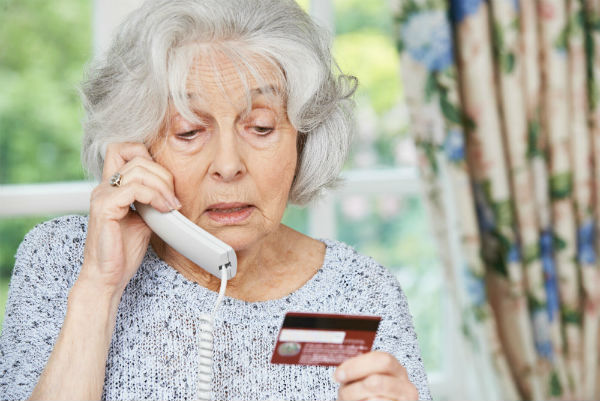|
Anyone can fall prey to identity theft or a financial scam. Older adults, however, rank as one of the largest demographics targeted by scammers. The FTC's 2017 report documented that seniors aged 60 years and older accounted for 35% of fraud and 18.9% of ID theft complaints.
The FBI Promotes "Fraud against Seniors" Awareness The FBI attributes several factors to senior vulnerability when it comes to identity theft and other types of fraud.
Medical Identity and Insurance Theft A caregiver or family member may steal the senior's Medicare number to obtain prescription drugs or file fraudulent claims. Because the Medicare and Social Security numbers have been one and the same, gaining access to such has had far-reaching effects. The inaccuracy of the individual's medical record may lead to ineffective or life-threatening diagnoses and treatments. On a purely financial level, your loved one is charged for services not received. While the situation can be corrected with proper documentation and diligence, it takes considerable effort to work through such a quagmire of deception. How to Protect Yourself
Email Scams Older adults are often less proficient with technology, which makes them much more vulnerable to online scams. Clicking on an email link that appears to be from a friend, relative, bank, or government entity can create an in-depth web of identity and account theft. It may appear to be a relative asking for help or an organization asking you to confirm your account number. Once you click on the link, you're redirected to a fraudulent site that steals the information you enter. How to Protect Yourself
Phone Scams While everyone has probably received a telemarketing or spam phone call at one time or another, seniors are particularly susceptible to specific types of phone scams. Receiving a call that asks for up-front money or expresses a sense of urgency is an immediate red flag. Some of the wording may sound like the following:
Whether you're concerned about your own safety or that of a loved one, it's always in your best interest to educate yourself for protection and prevention. Because seniors are particularly vulnerable to identity theft and other types of scams, helping to educate as a volunteer is a worthwhile opportunity to serve.
2 Comments
|
AuthorsBlogs are written by ARDC staff members Archives
January 2024
Categories |
Aging Resources of Douglas County 104 Fourth Street, Castle Rock, CO 80104 303-814-4300 [email protected]
©2023 Aging Resources of Douglas County | Help for Senior Citizens | Sitemap XML
All public documents will be available upon request.
©2023 Aging Resources of Douglas County | Help for Senior Citizens | Sitemap XML
All public documents will be available upon request.


 RSS Feed
RSS Feed



